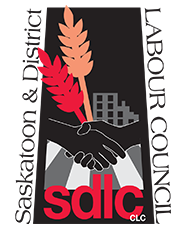Reports show liquor privatization a serious loss for small towns
Effects on Ituna, Kerrobert, Langenburg, and Ponteix studied
Government’s liquor privatization plan will have an especially damaging impact on Saskatchewan’s rural communities, according to two recent studies of towns whose public liquor stores have already been privatized.
“We’ve warned for years that the privatization of small-town liquor stores creates hardship for the communities affected, and these reports confirm that,” says Donna Christianson, chair of SGEU’s Saskatchewan Liquor and Gaming Authority (SLGA) bargaining unit. “Rural communities are already struggling, and through privatization, government is reducing services, taking away good jobs, and cutting local revenue.”
Recently, SGEU commissioned a researcher to visit four towns – Ituna, Kerrobert, Langenburg, and Ponteix – and meet with residents to discuss how they were impacted after their local liquor stores were privatized in 2014. The results show that privatization has had serious and lasting consequences for local residents and local economies.
In all four towns, the former Saskatchewan Liquor and Gaming Authority (SLGA) stores all remain empty, since private retailers who took over liquor sales incorporated them into existing businesses. Owners of other retailers report a substantial drop in sales since the loss of the traffic that SLGA stores brought to their communities – including one family-owned business facing closure since the rights to sell liquor were awarded to a competing store.
Residents of the four towns also report significant declines in the product selection available to them following privatization.
These findings are supported by a new study, released on Feb. 23rd by the Canadian Centre for Policy Alternatives. A Sober Reminder: Economic Impacts of Liquor Store Privatization in Small Town Saskatchewan provides an analysis of the economic impact of privatization on the same four towns.
The study found that privatizing rural liquor stores has a spin-off impact on jobs and local income that goes well beyond the employees directly affected. On top of the $429,000 in labour income lost by store employees whose jobs were terminated, additional labour income of up to $435,000 was lost by other workers who supported the stores or relied on their employees’ spending.
As well, in addition to the 6.6 full-time equivalent jobs lost by store employees, up to 1.45 full-time equivalent jobs were lost by other workers as a result of the store closures.
“Ituna, Kerrobert, Langenburg and Ponteix provide powerful examples of the negative consequences of privatizing small-town liquor stores,” says Christianson. “These reports confirm that despite government’s promises of better selection and more convenience, what privatization actually does is reduce services and hollow out economies in rural communities. “
“With government planning to close 40 SLGA stores, and replace many of them with private retailers inside existing businesses, more communities are set to face the same loss these four towns did,” adds Christianson. “We call on government to abandon this damaging privatization plan, and instead focus on strengthening and supporting rural Saskatchewan.”
-30-
For more information contact:
Donna Christianson
Chair, SGEU SLGA Negotiating Committee
306.527.4768
Susan Dusel
Communications Officer, SGEU Regina
306.775.249
Read the report of SGEU’s research project here.





